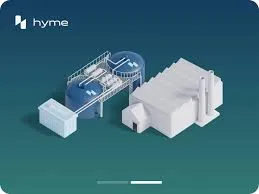oil fired boiler
Understanding Oil-Fired Boilers Efficiency, Applications, and Future Prospects
Oil-fired boilers are vital components in the heating systems of various residential and commercial buildings. They utilize oil as fuel to produce heat, which is then circulated throughout a property to provide warmth and comfort. As energy efficiency becomes increasingly crucial in modern society, understanding the operation, advantages, and future potential of oil-fired boilers is essential for homeowners and businesses alike.
How Oil-Fired Boilers Work
An oil-fired boiler operates by burning fuel oil in a combustion chamber. The process begins when the boiler’s control system signals the oil burner to ignite the fuel, producing heat. The generated heat warms water in the boiler, which is then circulated through pipes to radiators or heating systems within the building. This process not only provides effective heating but also allows for consistent temperature control.
One key feature of oil-fired boilers is their ability to reach high temperatures rapidly, making them suitable for colder climates. These boilers are designed to burn various types of fuel oil, including both high and low-sulfur options, which can be selected based on availability and cost.
Advantages of Oil-Fired Boilers
1. High Efficiency Oil-fired boilers are generally known for their high energy efficiency compared to other heating systems. Advances in technology have led to the development of condensing oil boilers, which capture and utilize waste heat, achieving efficiencies of over 90%.
2. Reliability Oil has historically been a reliable fuel source for heating. Unlike natural gas, which can be subject to price volatility and availability issues, heating oil can provide a stable and consistent supply.
3. Versatility These boilers are versatile and can be used for various applications, from heating single-family homes to providing hot water for commercial spaces. Their scalability makes them ideal for both small and large installations.
oil fired boiler

4. Storage Flexibility With the ability to store large quantities of oil, these systems can provide heating even during interruptions in fuel delivery. This storage capability grants users peace of mind, especially in remote areas where supply may be inconsistent.
Environmental Considerations
Despite their advantages, oil-fired boilers face scrutiny regarding environmental impact. The burning of fossil fuels releases carbon dioxide and other pollutants, contributing to greenhouse gas emissions. In response to growing environmental concerns and legislation aimed at reducing carbon footprints, the industry is evolving.
Newer models of oil-fired boilers are designed to meet stricter emissions standards, significantly decreasing the environmental impact of using oil as a heating source. Additionally, many companies are researching and developing biofuels as a more sustainable alternative to traditional heating oils, which could allow existing oil boiler systems to transition to a more eco-friendly fuel source.
The Future of Oil-Fired Boilers
While the trend toward renewable energy and electric heating systems is undeniable, oil-fired boilers continue to play a prominent role in the heating industry. Their ability to provide effective heating solutions in various applications means they are likely to remain in use, particularly in areas without access to a reliable electric grid or where gas is not a feasible option.
The future may also see advancements in hybrid heating systems that combine oil-fired boilers with renewable energy sources, such as solar panels. These hybrid systems can maximize efficiency and reduce reliance on fossil fuels while maintaining the dependability that oil provides.
Conclusion
In conclusion, oil-fired boilers remain a critical part of heating infrastructure for many properties worldwide. Their efficiency, reliability, and versatility ensure they will continue to be an essential option for heating. As the industry adapts to meet environmental standards and the growing demand for sustainable solutions, oil-fired boilers may evolve to embrace greener technologies and practices. Understanding these systems is crucial for anyone looking to invest in heating solutions that balance comfort, efficiency, and environmental responsibility.
-
High-Efficiency OEM Steam Boilers w/GPT-4-TurboNewsAug.02,2025
-
Advanced Electric Steam Boiler Manufacturers | GPT-4 Turbo AINewsAug.01,2025
-
Custom Steam Boilers Manufacturer | AI-Enhanced EfficiencyNewsJul.31,2025
-
Top Electric Steam Boiler Makers | AI-OptimizedNewsJul.31,2025
-
Top Electric Steam Boiler Manufacturers - High Efficiency SolutionsNewsJul.30,2025
-
Top Electric Steam Boiler Manufacturers – Efficient Industrial SolutionsNewsJul.29,2025

